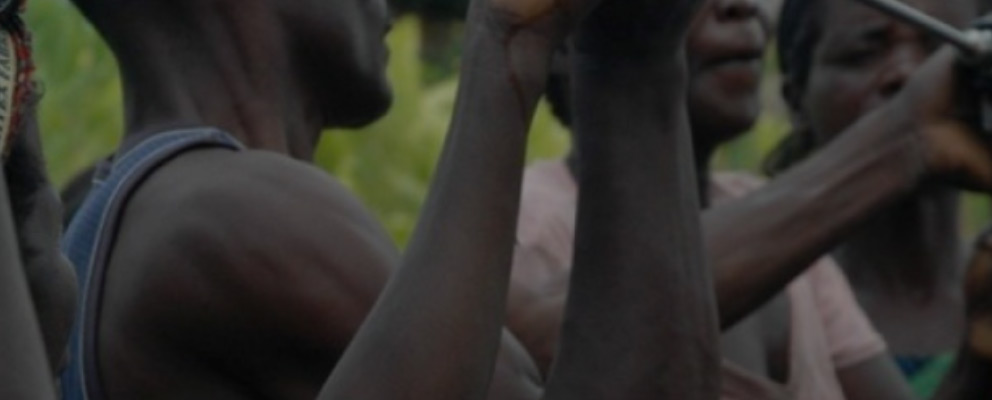
Missed opportunities: celebrating impact that scales
By Nicolas Synnott, Muthoni Wachira, Beth Foster
The African ventures market is thriving, and has seen significant growth over the past four years. In 2011, when EWB was just getting into impact investing in Sub-Saharan Africa, the market traction was low, and deals were hard to find. As the market has grown and evolved however, so too has our approach to driving impact through investment.
Today, EWB supports early-stage, for-profit, social enterprises who are driving change through innovative and inclusive business models. Sector agnostic, we make tailored, long-term investments starting at $50k into ventures with high potential to drive systemic change for the underserved in new and untested ways. We seek out highly scalable, innovative, locally-founded ventures in Kenya, Uganda, Ghana and Ivory Coast, and have developed a strong gender lens strategy that we apply across the investment cycle.
One key that hasn’t changed in the last 8 years, is EWB’s commitment to injecting financial and human capital to de-risk early-stage social enterprises targeting bottom-of-the-pyramid (BoP) populations. Our portfolio has grown to include Viamo, FarmDrive, M-Shule, Kwangu Kwako, Bloom Impact, Numida, Rent-to-Own and GreenPath, all of whom are focused on growing their impact in step with their revenues.
As the market has matured, it has been exciting to watch various startup champions emerge. These trailblazers are creating precedents that increase the Continent’s investment attractiveness, nurturing talent that will feed the growing ecosystem, and inspiring more leaders to launch transformative companies. In this article, we want to celebrate the successes of startups we did not invest in, but that are now scaling market-defining solutions. As impact investors, we recognize that we have much to learn, and looking at ventures outside of our portfolio provides a great opportunity for growth and reflection.
mPharma (Ghana): How a B2B2C Play is Making Healthcare Affordable for All
Access to quality healthcare remains a luxury in Africa, and unforeseen health issues are pushing households back into poverty every day. When one thinks about healthcare costs, medication might not be top-of-mind, but in reality it can amount to nearly 80% of all health-related costs. And even when a patient is able to find the means to purchase the proper drugs, they often face other issues such as supply shortages and counterfeit products.
mPharma’s unique insight into addressing this problem was understanding that the inefficient value chain lies at the heart of these common patient troubles. While most would see inventory software as a business optimization play, mPharma founder, Gregory, saw it as an opportunity to have a significant impact on vulnerable patients by eliminating stockouts. By leveraging enterprise resource planning systems, mPharma reduced drug prices by up to 30%, thanks to the aggregated purchasing power of pharmacies. mPharma is now using this infrastructure to increase its customer-base by helping patients pay for drugs not when they need them, but when they can.
“We realized that rising drug prices due to inefficiencies in the supply chain and uncapped profit margins made it difficult for payers to forecast their drug spend.” – Gregory Rockson, CEO, mPharma
With 243 pharmacies and 400,000 patients, their recent acquisition of Haltons in Kenya, and more than $25M raised so far, mPharma is on a journey to “overturn the injustice of millions of people who currently lack access to affordable medicine”. At EWB, we are excited to follow mPharma’s progress, and congratulate them for their important contribution to supporting healthy lives and promoting well-being for all (SDG 3). mPharma is a great reminder that in order to solve the BoP’s struggles, one might have to look upstream.
SafeBoda (Uganda): Increasing the Livelihood of Women through Road Safety
Road safety is a significant problem in many developing nations. For the many Ugandans (and now Kenyans, Nigerians, and others) who count on Boda Bodas (motorbike-taxis) to navigate Kampala’s infamous jams, the consequences of driver recklessness can be significant. Thanks to SafeBoda, a Boda hailing company founded in Uganda, commuters no longer have to trade convenience for safety.
Indeed, SafeBoda’s safety training and its fleet of close to 20,000 Boda drivers are transforming the culture around road safety, pressuring other ride-hailing services to follow suit. SafeBoda is also serving customers by making rides cheaper and offering a superior customer experience through its app. Through its service, SafeBoda is helping make cities and human settlements inclusive, safe, resilient and sustainable (SDG 11). It’s also significantly improving the livelihood of its drivers – and their dependents – by increasing their revenues and giving them access to previously inaccessible financial services like insurance.
Creating employment opportunities in an economy like Uganda’s, which suffers an annual deficit of 450,000 jobs, is an important lever for development. Equally as important is enabling opportunities for women, who are more vulnerable to abuse, sexual harassment, and violence. Affordable and safe transportation is a strong vector for women’s economic empowerment, as explained by this impact study from the Shell Foundation.
“Investments in accessible and affordable transport that are designed and delivered in ways that fit into women’s lives can unlock women’s economic potential by addressing barriers that constrain women’s mobility.” – Shell Foundation
At EWB, we’re incorporating a strong gender-lens in our work and are actively supporting our portfolio ventures in building more inclusive businesses. We are driven by the conviction that thinking about women and girls will not only improve a business’ social impact, but its financial returns as well. We are excited to see a rapidly growing, Uganda-based venture using smart mobility to empower and create more opportunities for women. We encourage entrepreneurs to follow SafeBoda’s lead by researching how they too can increase their impact on society while improving their bottom line. As a Gender Lens Investor, SafeBoda also reminds us of our role in helping entrepreneurs prioritize value creation for women, and to make the case for investing holistically in gender inclusion.
Twiga Foods (Kenya): Capital and Efficiency Makes Everyone Happy
Agriculture is a sector that we care deeply about at EWB, as food can account for up to 42% of consumer spending in countries such as Kenya. Agriculture is also a big source of income in Africa, with over 40% of Kenyans and up to 60% of all Africans work in agriculture according to the FAO and Brookings.
For staple commodities such as fruits and vegetables, one would expect to see efficiency in pricing across the value chain. However, the absence of direct market linkage and the high level of supply-and-demand fragmentation allows exploitative middlemen to capture most of the value from consumer products. Like many others, Twiga Foods saw an opportunity here to optimize the system. Twiga links farmers and vendors to fair, trusted, modern markets, providing a complete supply chain in Kenya for quality produce in urban areas.
What differentiated Twiga early-on was its counter-intuitive approach to this optimization problem. Instead of focusing on building an intangible platform, they invested heavily in real assets and human capital to offer a high-touch, people-based model. According to Grant (CEO), one of Twiga’s core values is to never outsource core business functions. Instead of pressing for higher margins, they have a ‘buy high, sell low philosophy’, offering better margins to their whole ecosystem. This lowers Twiga’s customer acquisition costs while increasing their lifetime value.
Instead of selling multiple products from the very beginning, they dealt exclusively with bananas, bringing extreme focus to optimizing their market linkage process. Twiga also chose not to take a disruptive, “scale-at-all-costs” approach. Instead, they focused on building their infrastructure and perfecting their execution to make sure the economics worked before adding other products.
Along the way to improving the livelihoods of farmers and sellers by eliminating brokers, Twiga has increasing Kenya’s food safety and quality (SDG 2) by:
- Lowering post-harvest losses to 5%, a 6x improvement compared to the usual 30% in Kenya
- Incentivizing more farmers to produce more food
- Implementing food quality checks
Through value chain optimization, Twiga is able to have a direct impact on creating decent work for the bottom of the pyramid (SDG 8) while driving systemic change for all. The lesson here is that the financial and social ROI on asset-heavy and high-touch solutions, if thoughtfully designed, can be higher than a traditional software play.
Where do we go from here?
mPharma, SafeBoda, and Twiga Foods are all testaments to the fact that:
- Impact arises only when it’s baked-in to a venture’s DNA
- Impact grows and scales as the business does, often in unforeseen ways
- Product-market fit can only be achieved by addressing the root cause of the customer’s problem
- Blindly reproducing solutions from the Global North just doesn’t work
We salute the pioneers behind these businesses and celebrate the rise of impact-driven innovators who are demonstrating that it’s possible to build and grow a viable startup in Africa, inspiring the next wave of entrepreneurs from the Continent.
While we recognize and celebrate the impact of these three companies, we also have to acknowledge that they represent a broader, less positive trend in the African venture space: most African startups are founded by men and funded by foreigners. While clearly these ventures are able to provide value and drive impact, it is important to consider what is being missed when local and gender diverse teams are passed over for funding. At EWB, we are eager to discover the innovative solutions these teams hold. That’s why our commitment to diversity and inclusion translates into early-stage investments that value women-led and local teams providing benefits to the underserved. That’s where the future of sustainable and long lasting impact lies – in the hands of those who truly understand the context and the need. But that’s a story for another day…
If you are an innovator with a founding team made up of people of color, people from emerging markets and women, you are the future! Send us an email at investments@ewb.ca
